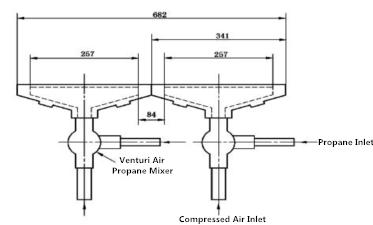tensile testers
Understanding Tensile Testers An Essential Tool in Material Science
Tensile testing is a fundamental procedure used in material science to assess the mechanical properties of various materials. The device employed for this type of testing is known as a tensile tester or tensile testing machine. These machines play a crucial role in determining a material's strength, ductility, and elasticity, which are vital parameters for applications in various industries, including construction, manufacturing, and aerospace.
A tensile tester operates by applying a controlled tensile force to a sample material until failure occurs. The machine typically consists of a frame, load cells, grips to hold the sample, and a data acquisition system. The testing process begins with the preparation of the sample, which is usually shaped into a standardized dog-bone form, designed to ensure uniformity and consistency during the test.
As the tensile force is applied, the tensile tester records real-time data on the material's response to the increasing load. The key outputs of a tensile test include the ultimate tensile strength (UTS), yield strength, elongation, and modulus of elasticity. Ultimate tensile strength indicates the maximum stress that a material can withstand while yield strength marks the limit of elastic behavior. Elongation measures the degree to which a material can be stretched before it fractures, while the modulus of elasticity reveals the material's stiffness.
tensile testers

The results obtained from tensile tests are invaluable for engineers and designers, as they help predict how materials will behave under different loading conditions. This information is critical for selecting materials that will not only perform well but also ensure safety and reliability in their intended applications. For instance, in the automotive industry, knowing the tensile properties of metals used in car frames can prevent catastrophic failures in crashes.
Modern tensile testers come equipped with sophisticated software that facilitates data analysis and reporting
. This technology allows for a seamless integration of results into quality control processes, ensuring that materials meet specific industry standards. Moreover, advancements in tensile testing have led to the miniaturization of devices, enabling on-site testing and faster decision-making in manufacturing environments.In addition to its industrial applications, tensile testing helps in academic research to understand material behavior at a fundamental level. Researchers utilize this testing method to investigate new materials, such as composites and polymers, contributing to innovation and development in material science.
In conclusion, tensile testers are indispensable tools that provide critical insights into the mechanical behavior of materials. By quantifying properties like strength and ductility, these machines enable the development of safe and efficient products across various industries. As technology continues to evolve, the capabilities of tensile testing will only expand, leading to even more precise and informative assessments of material properties. Whether for quality control in manufacturing or for cutting-edge research, tensile testers remain at the forefront of material evaluation, making significant contributions to the field of engineering and beyond.
-
reliable-performance-testing-with-advanced-aging-chamber-solutions
NewsAug.23,2025
-
advancing-precision-with-profile-projector-technology
NewsAug.23,2025
-
uv-led-ultraviolet-crosslinking-technology-innovation-and-prospects
NewsAug.23,2025
-
ensuring-safety-and-compliance
NewsAug.23,2025
-
electrical-properties-testing-in-modern-applications
NewsAug.23,2025
-
universal-tensile-testing-machine-applications-in-modern-electrical-and-material-testing
NewsAug.23,2025
 Copyright © 2025 Hebei Fangyuan Instrument & Equipment Co.,Ltd. All Rights Reserved. Sitemap | Privacy Policy
Copyright © 2025 Hebei Fangyuan Instrument & Equipment Co.,Ltd. All Rights Reserved. Sitemap | Privacy Policy

